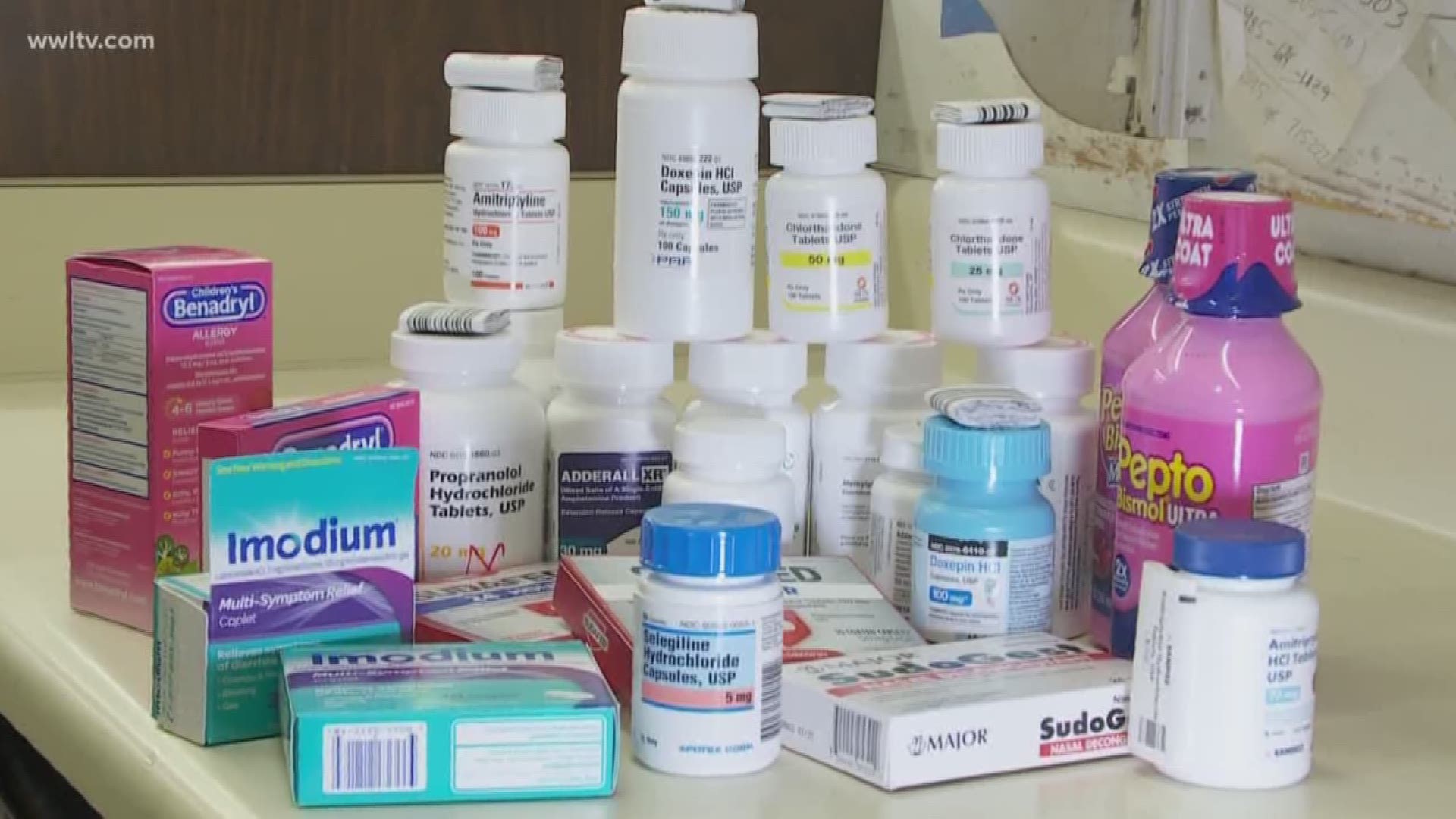It was back when a familiar face here at Channel 4 News was in high school. Young, in shape, running cross country, he could run a 10K, the length of the Crescent City Classic, in less than 30 minutes. In the middle of a race one day something felt terribly wrong.
"And as I came toward the finish line of the 5k race, all I can remember is just everything being blurry. I couldn't see anything. And I didn't know I was doing this, but I was finishing the race, I was kind of doing a serpentine into the finish line, and then collapsed as soon as I crossed the race," said Meteorologist Dave Nussbaum.
Had he not gotten medical attention right away, a heat stroke like this could have been fatal.
"I was severely dehydrated," he remembers.
Dave's mother, who's a nurse, figured out why.
"For me, my allergies were a lot worse up there," Nussbaum said about his home up north at the time.
Dave was in Pittsburg. He suffers from hay fever He had taken Sudafed for the symptoms, runny nose and congestion. He like many others didn't know that there are many over-the-counter and prescription drugs that make you much more susceptible to heat stress, heat exhaustion and heat stroke.
"It's an emergency. It's a 911 emergency. If it's going to dry up your nose, it could also prohibit sweating," Dr. Jim Diaz, the LSUHSC head of Occupational and Environmental Sciences in the School of Public Health.
Dr. Diaz has a long list of medications that can cause problems when you take them and get over heated. Antihistamines like Benadryl, diarrhea medications, a certain class of anti depressants and anti psychotics that are sometimes used for pain. Water pills, that are sometimes also combined in your high blood pressure medicine, Alzheimer's and Parkinson's drugs, beta blockers for your heart, and asthma and ADHD drugs, both often taken by children.
"Right now, we're getting ready to start, you know, summertime preseason football practice. It's of very concern," said Dr. Diaz.
For Dave up north, it was about 80 degrees at the time, but in New Orleans, it can easily be 20 degrees hotter. Dr. Diaz says people need to first pre-hydrate.
"So even before practice, kids need to be start loading up on water, sports drinks containing electrolytes. Never sodas. Never caffinated drinks," cautioned Dr. Diaz.
And then constantly rehydrate during practice and games. It took Dave an entire 24 hours to feel better. He stop taking Sudafed on race days deciding just to run with the allergy symptoms.
"It's one of those things you don't think about that, that medicine can actually play a significant role in your performance. While you feel better initially, it will hurt you in the long run, " said Nussbaum about the lesson he learned.
The doctor says that all illegal, street drugs also put users at high risk for heat illnesses.

